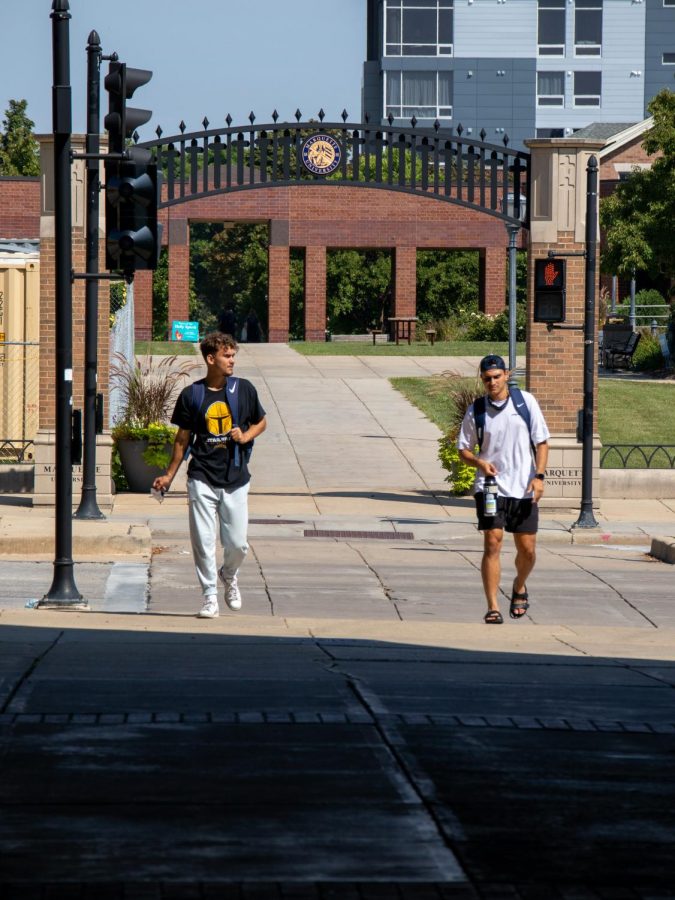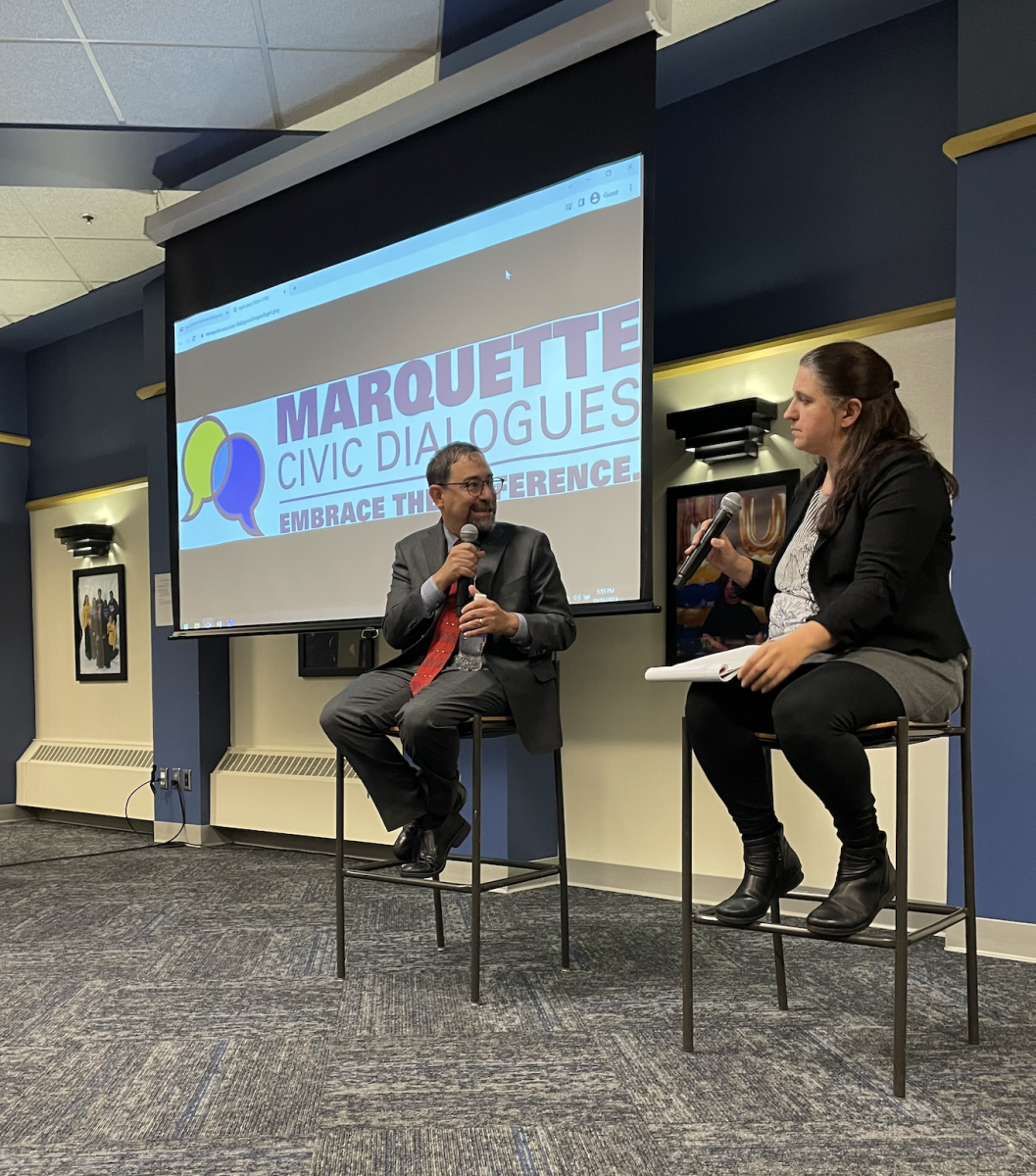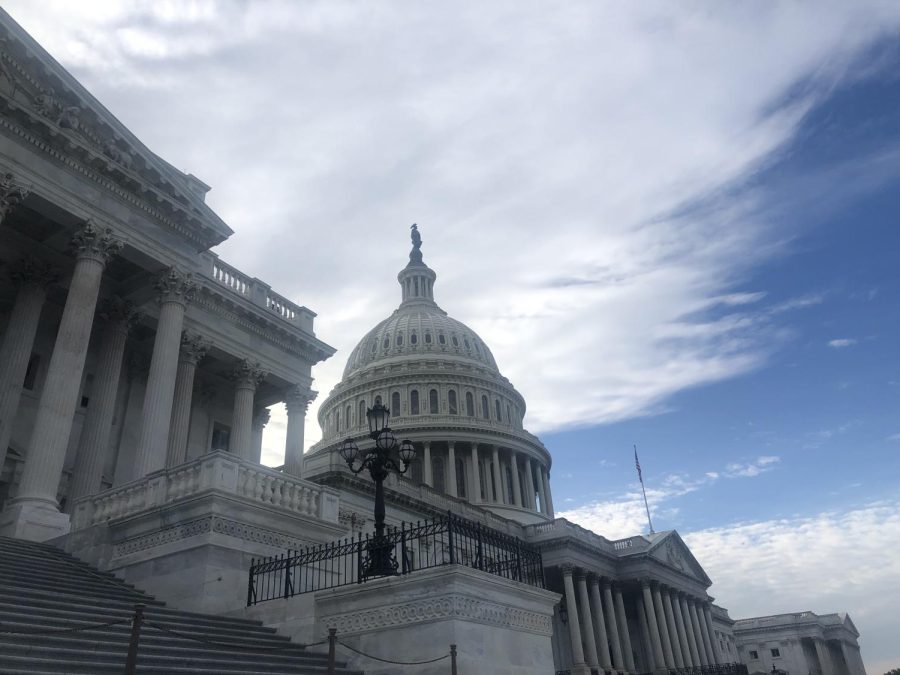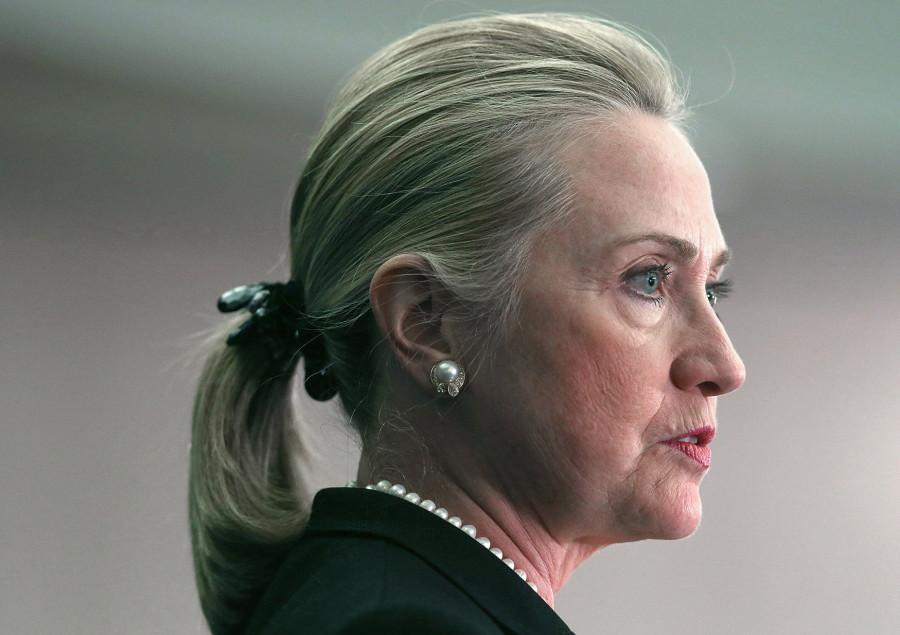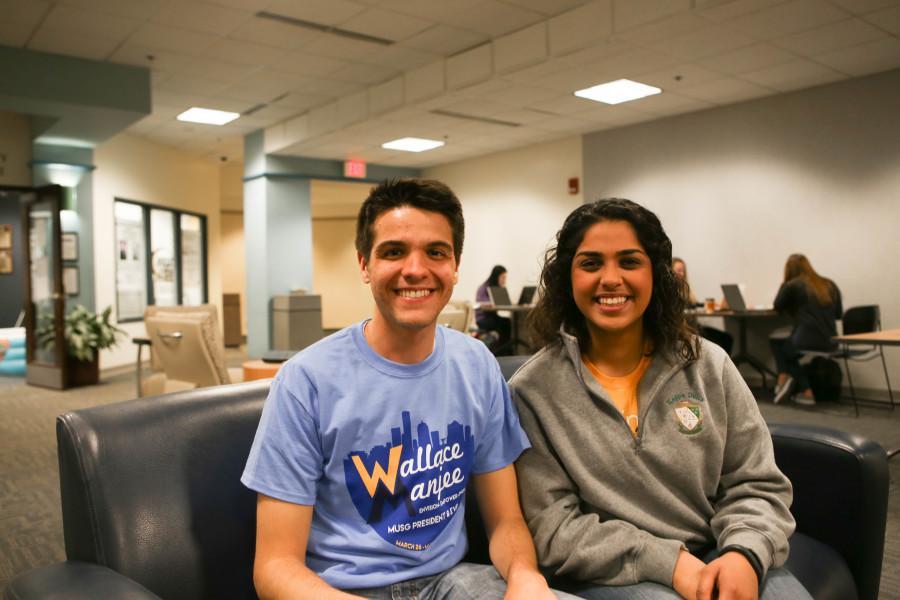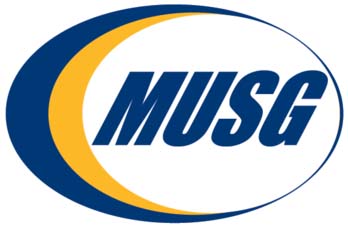The election reform amendment defeated before Thanksgiving reappeared at Thursday’s Marquette Student Government meeting, but this time the amendment was passed by the Senate by a vote of 24 to 4.
However, the amendment process took an interesting turn after a senator chose to propose a change to the amendment that would have eliminated the possibility for presidential and vice presidential race write-in candidates.
The amendment was defeated at MUSG’s meeting Nov. 19, after a number of senators expressed their concern over the change. However, College of Arts & Sciences senior Bill Doerrer, one of the authors of the legislation, brought the legislation back for this week’s meeting in the hopes that it would pass this time with more senators present.
At the meeting, Doerrer only briefly mentioned the amendment’s other clauses, such as establishing a statute of limitations on election campaign violations and preventing seniors graduating in December from running for office, before addressing the write-in clause that had previously sparked contention.
Doerrer said the reason the clause had remained in the amendment was that the ability to have write-in candidates allowed some to circumvent the rules of the primaries and effectively elect themselves into office.
He also said the amendment and the write-in clause had the full support of Election Coordinator Nick Giannini, a senior in the College of Arts & Sciences, for whom the amendment is officially named.
“This was his baby,” Doerrer said. “This was the one idea he was very adamant about.”
College of Communication senior Paige Jorgensen, who was one of the main opponents of the amendment at the last meeting, spoke briefly Thursday but did not raise any major objections or concerns other than to ask adviser Jon Dooley about what the present write-in procedure was.
Objection came instead from College of Arts & Sciences sophomore Emil Ovbiagele. In the midst of debate, Ovbiagele proposed the Senate change the amendment to remove the possibility for write-in candidates in presidential and vice presidential races as well as from Senate races.
Ovbiagele’s rationale was that the elected members of the senate “should all be subjected to the same level of scrutiny or requirements.” He said he came to the conclusion after Doerrer stated the reason for this clause would be to ensure senators are elected democratically by constituents.
“Everyone should be made to go through that process,” Ovbiagele said.
Ovbiagele was supported by College of Arts & Sciences sophomore Raviinder Gill, who said senators are just as important to MUSG as the president and vice president.
But Doerrer quickly spoke out against this proposed change, saying that while Ovbiagele’s idea was his original plan, it became clear to him it was not the best decision for MUSG.
“The president and vice president are much more important than we are to this organization,” Doerrer said.
Doerrer said his main problem with the proposed change was that, in a presidential or vice presidential election, write-ins are allowed so candidates that lose in the primary can still try to be elected, and have a purpose other than to circumvent the election process.
Shortly thereafter, College of Arts & Sciences senior Giuseppe Pappalardo motioned to move the issue directly to a vote, which was unanimously approved. The amendment to the amendment failed by a vote of 25-3.
There was little debate after this vote, with Pappalardo throwing his support behind the amendment and saying that it ensured only candidates who cared enough about being senators to follow the rules would be elected.
“It’s a question of dedication,” Pappalardo said.
The original amendment required 22 votes to pass, and was approved 24 to 4.
In other news:
- President Henry Thomas announced MUSG would begin looking for a new Financial Vice President for the next fiscal year next week.
- Thomas also said he had met with various administrators, including Senior Vice President Greg Kliebhan and Vice President for Administration Arthur Scheuber, to discuss MUSG’s recent Sodexo recommendation and problems with the food service provider. He said both Kliebhan and Scheuber had verbally committed to invest funds in improvement.
- The SOA Committee allocated almost $35,000 to 17 club sports teams, with the largest allocation, $7,000, going to the men’s club lacrosse team.


